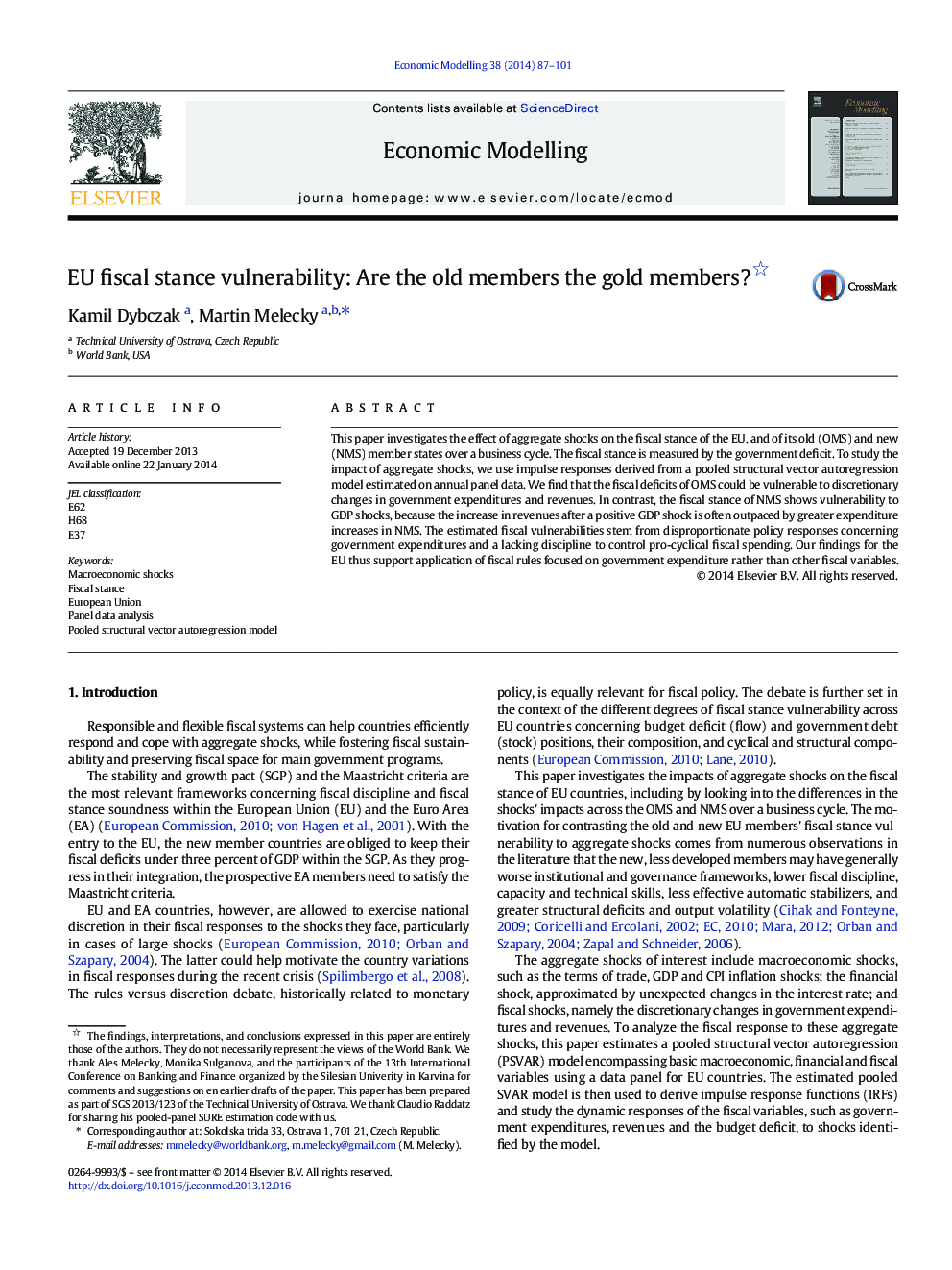| Article ID | Journal | Published Year | Pages | File Type |
|---|---|---|---|---|
| 5054356 | Economic Modelling | 2014 | 15 Pages |
Abstract
This paper investigates the effect of aggregate shocks on the fiscal stance of the EU, and of its old (OMS) and new (NMS) member states over a business cycle. The fiscal stance is measured by the government deficit. To study the impact of aggregate shocks, we use impulse responses derived from a pooled structural vector autoregression model estimated on annual panel data. We find that the fiscal deficits of OMS could be vulnerable to discretionary changes in government expenditures and revenues. In contrast, the fiscal stance of NMS shows vulnerability to GDP shocks, because the increase in revenues after a positive GDP shock is often outpaced by greater expenditure increases in NMS. The estimated fiscal vulnerabilities stem from disproportionate policy responses concerning government expenditures and a lacking discipline to control pro-cyclical fiscal spending. Our findings for the EU thus support application of fiscal rules focused on government expenditure rather than other fiscal variables.
Related Topics
Social Sciences and Humanities
Economics, Econometrics and Finance
Economics and Econometrics
Authors
Kamil Dybczak, Martin Melecky,
